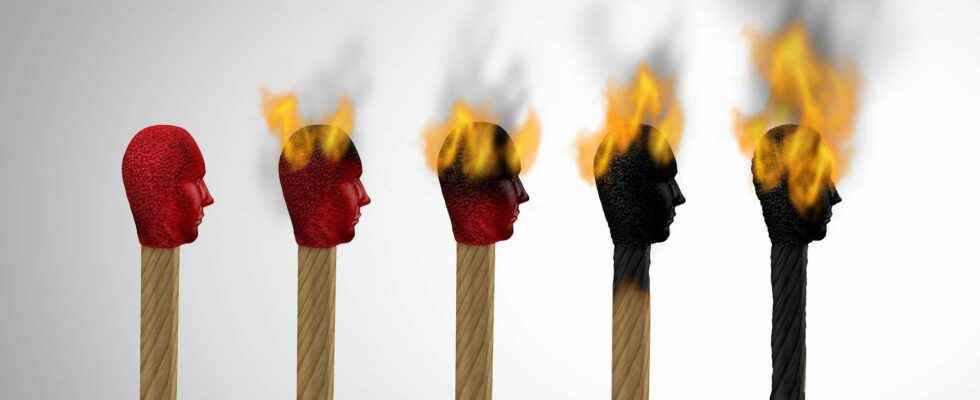For several years, the world of work has continued to evolve, bringing with it many changes. While some of these developments have had a beneficial effect, others have accentuated the professional malaise of certain employees, and brought about new suffering at work. Burn-out, bore-out and brown-out have become part of the vocabulary of many workers. But how to differentiate between these three sources of burnout?
You may also be interested
[EN VIDÉO] Depression, symptoms and treatment? Depression is an increasingly common illness, which should not be confused with normal moments of sadness during sad life events. Explanations with Virginie Lacombe, museographer and project manager at the Cité des Sciences et de l’Industrie.
According to the 10e barometer of the psychological health of French employees, published on July 7 by OpinionWay for the firm Empreinte Humaine, 59% of those under 29 (+5 points) and 43% of managers (+10 points) declare themselves to be in distress psychological. This is also the case for 45% of teleworkers (+5 points).
In April 2022, the ninth barometer of the Empreinte Humaine firm reported 2.55 million employees in a situation of burnout severe, and 38% in a situation of psychological distress, mixing symptoms burnout and depression.
While burnout is the most well-known form of professional exhaustion, there are other equally dangerous forms. Focus on the three main forms of employee burnout and their characteristics.
burnout
Burn-out occurs during an overload of work and an over-investment on the part of the employee. This can lead to emotional fatigue, loss of commitment and cynicism in one’s day-to-day work. According to High Authority of Health, burnout can manifest as:
- cognitive disorders: memory problemsconcentration or attention;
- physical disorders: sleeping troublesmuscle tension, dizziness, headaches, abnormal fatigue, gastrointestinal disorders, eating disorders;
- emotional disorders: anxiety, sadness, irritability, hypersensitivity, loss of will;
- behavioral or interpersonal problems: disengagement, lower motivation, lower morale, devaluation.
burnout is not recognized yet as an occupational disease but it affects more and more employees. Its appearance can lead to depression if it is not detected and accompanied in time.
The bore-out
Unlike burn-out, which results from overwork and over-investment by the employee, bore out is the result of chronic boredom due to underwork. We talk about bore-out when the lack of stimulation and under-workload are in an extreme phase on a daily basis. Different causes can be at its origin: repetitive tasks, lack of professional development, overqualification of the employee in relation to his activities…
This lack of recognition and of objectives to be achieved can then lead to repeated absenteeism, work fatigue, a drop in self-esteem, disengagement in one’s work, an increase in stress and risk of depression. The famous ” get paid for doing nothing which, for some, can be experienced as real torture.
The brownout
Harder to detect, the brown-out concerns employees who feel useless in their work. The famous ” bullshit jobs are a perfect illustration of this. These are trades that are generally time-consuming but whose usefulness is questionable. The crisis of Covid-19 only reinforced this feeling of c…n crafts », characterized by their lack of meaning and coupled with the uselessness and absurdity of the work carried out. The employee performs his work mechanically, without motivation and without thinking about what he is doing. This loss of meaning can lead to withdrawal and great psychological suffering that can lead to depression.
What are the solutions for these three forms of burnout?
If you think you recognize a form of professional burnout in you or one of your colleagues, do not hesitate to talk about it around you, whether it is to your work colleagues, to your superior, to try to change certain things, to occupational medicine or to your general practitioner. The important thing is not to isolate yourself or cut yourself off from others at the risk of aggravating the symptoms and the feeling of unease at work. Such a situation can also be the trigger for a retraining or a change of company.
Interested in what you just read?
